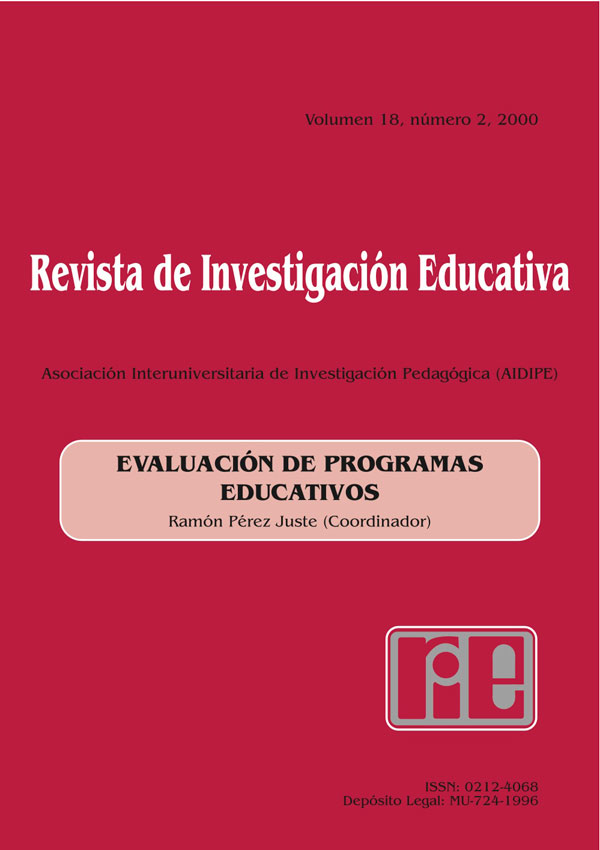Nuevas tendencias en la evaluación de programas de Educación Multicultural
Abstract
The article brings together a number of the different approaches to evaluative research which have been found to be particulary useful in the evaluation of multicultural education programs. While the models presented here have the common feature that they are developed from a qualitative perspective, emphasis is placed in their potential in responding to those needs which appear in the evaluation of social programmes, and in particular in the evaluation of multicultural education programmes. The starting point is a brief analysis of these needs which is followed by a study of some possible models which try to offer a more adequate response to these needs.
Four such models are presented: participative evaluation, democratic and deliberative evaluation, collaborative evaluation and the evaluation of community based programmes. The materials used are drawn from a wide variety of literature related to the theme, and especially from our own experience in multicultural programme evaluation.
Finally, this article provides a fuller development of the study of «empowerment» as an evaluation strategy in intercultural education and at the same time offers an example of the application of this strategy in a programme evaluation.
Downloads
-
Abstract2881
-
PDF (Español (España))1880
The articles and scientific documents published in RIE abide the following conditions:
1. The Servicio de Publicaciones de la Universidad de Murcia (the publisher) has the property rights (copyright) of all the documents published and allows the reuse under the user’s license indicated in point 2.
2. All documents are published in the digital edition of RIE under a Creative Commons Reconocimiento-NoComercial-SinObraDerivada 4.0 Internacional. (legal document) license. These documents can be copied, used, distributed, communicated and explained publicly if: i) the author(s) and its original source of publishing (magazine, publisher and URL of the document) are cited; ii) it is not used for commercial purpose; iii) the existence and the specifications about this license are mentioned.
3. Auto-archive’s conditions. The authors are allowed and encouraged to digitally distribute the pre-print versions (a version before evaluation) and/or post-print (a version that it is already evaluated and accepted to its publication). This promotes circulation and distribution earlier and can increase the citations and significance within the academic community.










